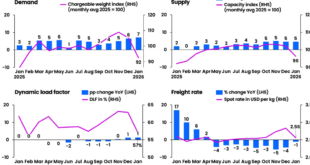Lawrence Livermore National Laboratory, for a second time, repeats milestone fusion experiment that produces more energy than it consumes
Scientists in the United States have repeated an experiment that has resulted in a net energy gain during a fusion reaction.
Reuters reported that the boffins at the Lawrence Livermore National Laboratory (LLNL) repeated the fusion experiment in the National Ignition Facility (NIF).
LLNL said its breakthrough experiment on 5 December 2022 had produced 3.15 megajoules of fusion energy as output, exceeding the 2.05 megajoules delivered by the 192 lasers that had focused on a target of fuel to fuse two light atoms into a denser one, thereby releasing the energy (i.e. starting the fusion ignition).
Experiment repeated
Since the December experiment, scientists had sought to refine the technique and on 30 July, they reportedly repeated the experiment once again, but achieved a higher energy yield than the earlier breakthrough.
Final results are still being analysed, and the boffins are still to officially report their results at an upcoming scientific conferences and in peer-reviewed publications.
“The NIF Operations teams in the Target Bay and Control Room did an incredible job working meticulously through the long preparation to get the laser, diagnostic systems and the DT (deuterium-tritium) fuel layered target ready for the Control Room to start the shot sequence,” said Bruno Von Wonterghem, NIF’s longtime commissioning and operations manager, speaking about the two experiments.
“The team worked diligently through all issues and successfully fired all 192 beams with all systems participating,” said Von Wonterghem. “The best reward was that they were the first people to know that this shot was very different, as the alarms started sounding. They made history happen.”
Prior to that in February 2022 scientists and engineers running the Joint European Torus (JET) facility in Oxford, UK, achieved a record-breaking 59 megajoules of heat energy from fusion, more than double the previous record achieved by JET.
![]()
Fusion energy
Fusion is the power source that fuels the sun, and could potentially pave the way for advancements in the future of clean power, as well as for defence purposes.
Fusion is inherently safe as it cannot start a run-away process.
Incidentally, film buffs will remember that the “Mr Fusion generator” powered Marty McFly’s flying DeLorean time-machine in the ‘Back To The Future’ movie series.
But it should be noted that nuclear fusion still needs to overcome considerable barriers before it is a viable energy source for the world.
In May this year, Helion Energy, the Sam Altman (OpenAI’s CEO) backed clean energy provider, signed a deal to provide Microsoft with fusion power, starting in 2028.
Helion Energy is a private US nuclear fusion company and it intends to provide the software and cloud giant with clean electricity in about five years time.
Helion Energy said it would provide Microsoft electricity from its first fusion power plant. It said the Helion Energy plant is expected to be online by 2028 and will target power generation of 50 MW or greater after a 1-year ramp up period.
One megawatt can supply up to roughly 1,000 US homes on a typical day.
Meanwhile Microsoft co-founder and philanthropist Bill Gates is the biggest investor in US startup TerraPower, which achieved a $750 million funding round last year.
TerraPower is developing a class of nuclear fast reactors termed travelling wave reactors (TWR).
Source link



